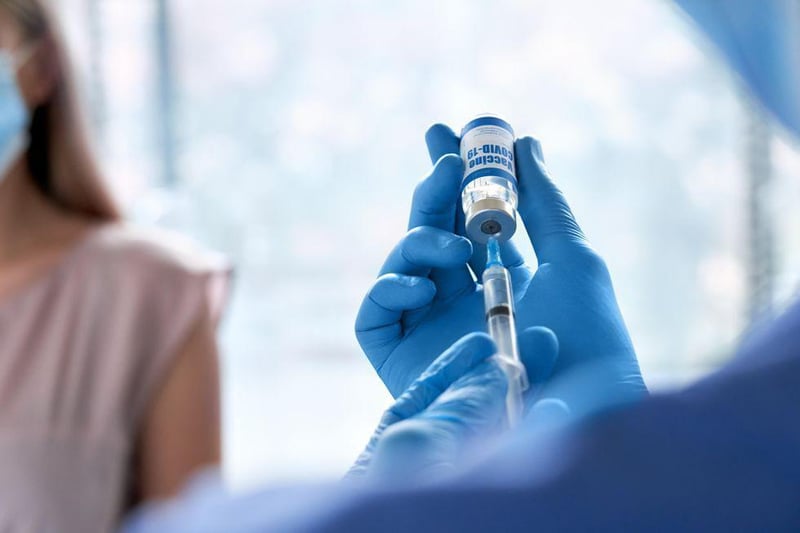Get Healthy!

- Robert Preidt and Robin Foster
- Posted December 16, 2021
CDC Vaccine Panel to Again Weigh Safety of J&J COVID Shot
Following continued reports of a rare but life-threatening clotting condition linked to the Johnson & Johnson coronavirus vaccine, a federal advisory panel will meet Thursday to once again weigh the safety of the shot.
The Advisory Committee on Immunization Practices (ACIP), which makes vaccine recommendations to the U.S. Centers for Disease Control and Prevention, is set to vote on "updated recommendations for use" of the single-dose vaccine, according to an agenda of the meeting.
The expert panel will hear updated information about thrombosis and thrombocytopenia syndrome (TTS), a rare blood clotting condition that has been linked to J&J's vaccine, but not to the Pfizer or Moderna vaccines.
At a COVID-19 briefing on Wednesday, CDC Director Dr. Rochelle Walensky would not provide additional information about the focus of the meeting.
"ACIP meets intermittently to review the safety data of all of their vaccines and I will look forward to their discussions tomorrow to [a] review of those data and to any recommendations that come thereafter," Walensky told CNN.
But a person close to the matter told CNN that the committee's vote may involve limiting who's recommended to get the vaccine.
The source said it's possible the CDC could recommend against the use of the vaccine in women under 50. TTS is very rare. Women 30 to 49 have seen the highest rates of this type of blood clot, but it has sometimes occurred in older women and in men.
"I think a fair amount of the discussion will be about J&J -- do we need to use this one at all since we have so much of the others, or, if it's used, should it be focused on certain populations?" the person told CNN. "We could just take J&J off the table and do fine in this country."
So far, about 16 million people have been fully vaccinated with the J&J vaccine in the United States, compared with about 73 million with Moderna and over 113 million with Pfizer.
Right now, the J&J vaccine is authorized for use in people 18 and older, and can be used as a booster shot for adults fully vaccinated with the J&J, Pfizer or Moderna vaccines.
But on Tuesday, the FDA weighed in on the vaccine and said people with a history of TTS should not get the J&J vaccine.
"You should not get the Janssen COVID-19 Vaccine if you had a severe allergic reaction after a previous dose of this vaccine; had a severe allergic reaction to any ingredient of this vaccine; had a blood clot along with a low level of platelets [blood cells that help your body stop bleeding] following Janssen COVID-19 Vaccine or following AstraZeneca's COVID-19 vaccine [not authorized or approved in the United States]," the agency said in an updated fact sheet for vaccine recipients and caregivers.
Clotting issues with the J&J vaccine first surfaced in April, when early reports of TTS drove a short pause in the use of the vaccine. The CDC has continued to monitor TTS cases linked to the vaccine since then. In a November report published on a pre-print server, 52 confirmed reports of TTS had surfaced among the more than 16.4 million Americans who had received doses of the J&J vaccine.
Both the CDC and the FDA have said people who receive the J&J vaccine -- particularly women younger than 50 -- should watch for symptoms a week or two after a shot that include severe or persistent headaches or blurred vision; shortness of breath; chest pain; leg swelling; persistent abdominal pain; or easy bruising or tiny blood spots under the skin beyond the injection site. If any of those symptoms develop, people should seek medical care immediately.
Jake Sargent, a spokesman for Johnson & Johnson, told the Washington Post that the company's updated fact sheet includes the latest information from the FDA about the rare condition.
"We are committed to understanding and communicating all known risks, including rare events of [the blood clot condition], and strongly support raising awareness of the signs and symptoms of this rare event,"he said.
More information
Visit the U.S. Centers for Disease Control and Prevention for more on the J&J vaccine's safety profile.







